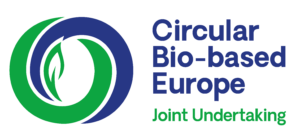Problem
Today, the aquafeed industry faces a huge protein supply gap. The European aquafeed industry, in particular, imports over half of the protein used in their products. Skretting (with their mother company, Nutreco), a Norwegian company and the largest aquafeed producer in the world, has set a clear goal to reduce 58% of their supply chain carbon footprint by 2030. Therefore, novel and low-footprint proteins are urgently needed.
Concept and Approach
The SynoProtein project aims to develop, mature, and demonstrate a novel carbon-negative process that converts forest residues into Single-Cell Proteins (SCP) for fish feed, along with the production of biochar for animal feed. By transforming low-value by-products into high-value bio-products, SynoProtein will provide a sustainable protein alternative to soybean and wild fish protein, to meet future demands.













